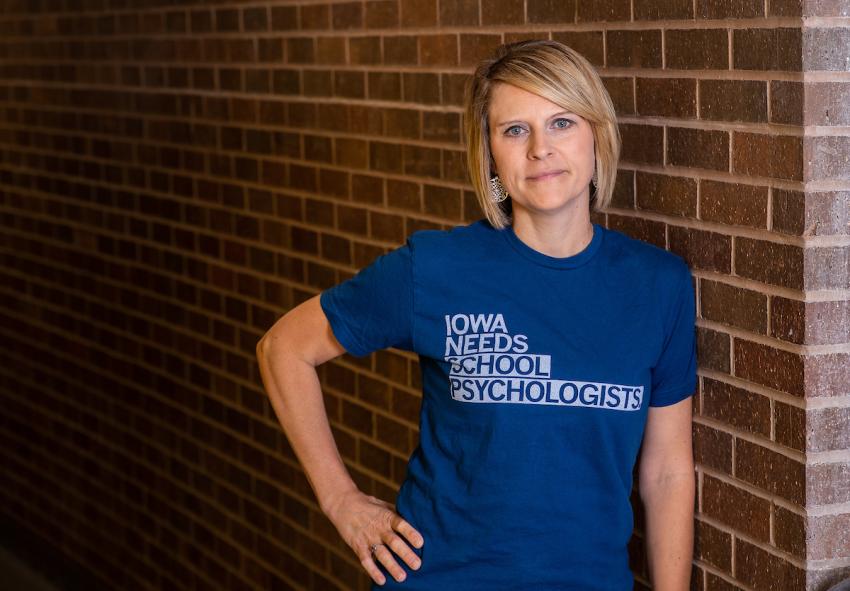A model for "growing" school psychologists
As the world continues to live with COVID-19, it’s become evident this scourge has left its imprint on both physical and mental health. For students, parents, schools and education professionals, it has been yet another reminder of the great need for improved access to mental health services.
 School psychologists are a key part of a systemic response to meet this need. These professionals are trained in both psychology and education, with a focus on children. Currently, there is only one school psychologist per 1,200 students nationally, above the recommended ratio of 1 per 500 students, according to the National Association of School Psychologists.
School psychologists are a key part of a systemic response to meet this need. These professionals are trained in both psychology and education, with a focus on children. Currently, there is only one school psychologist per 1,200 students nationally, above the recommended ratio of 1 per 500 students, according to the National Association of School Psychologists.
At a virtual Congressional briefing in July, Nicole Skaar, associate professor with the Department of Educational Psychology, Foundations and Leadership Studies, and a nationally certified school psychologist, shared some hope: a ground-breaking program in partnership with two area education agencies in Iowa.
With federal grant funding, the Green Hills Area Education Agency (AEA) and Prairie Lakes AEA have partnered with UNI for a distance education program to increase the number of school psychologists in their region by 20 percent over five years. It’s a “grow your own” approach for high need rural areas. Current K-12 educators with a master’s degree can earn their educational specialist (Ed.S.) degree in 18 months as long as they commit to working in their AEAs for three years. Four current students are starting their internships in August and five student will begin the program coursework in spring 2022.
Skaar and colleagues Kerri Clopton and Stephanie Schmitz lead the only nationally accredited school psychology program in Iowa, which maintains a 100 percent placement rate among its 10 graduates annually per cohort. While proud of the quality of the program, Skaar recognizes models like the AEA program are critical to do even better in improving access to care and practitioners.
“There is proposed legislation (H.R.3572/S.181: Increasing Access to Mental Health in Schools Act) that will provide funds to increase programs like ours that will support training school psychologists,” says Skaar. “COVID has put even more focus on the need for school-based mental health providers, and our program does just that. I am hopeful that NASP’s advocacy, with our support, will lead to the passage of this legislation. I was honored to represent our program during this national briefing to congressional staff members.”
Skaar, a former president of the Iowa Association of School Psychologists, was invited by NASP to present.
